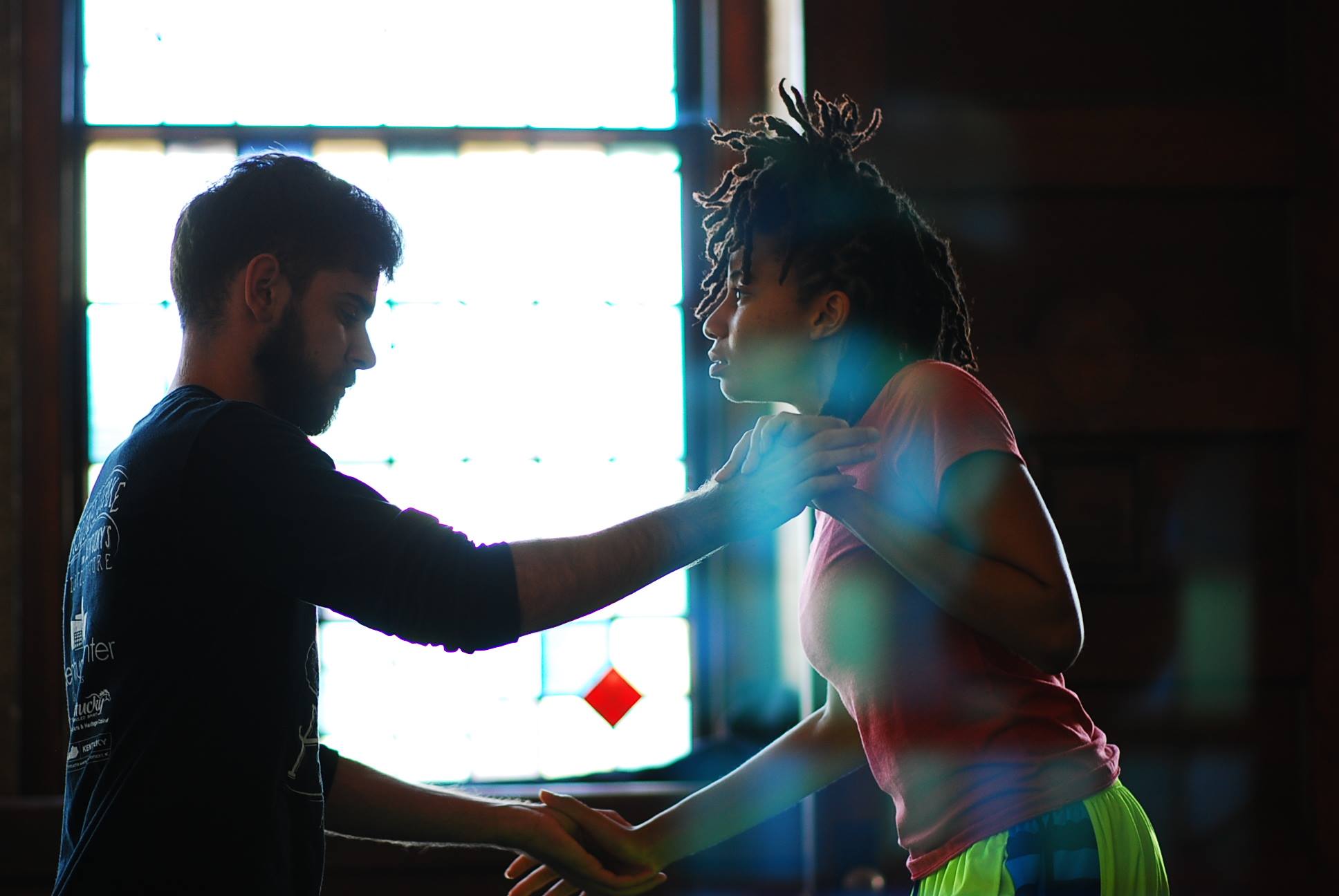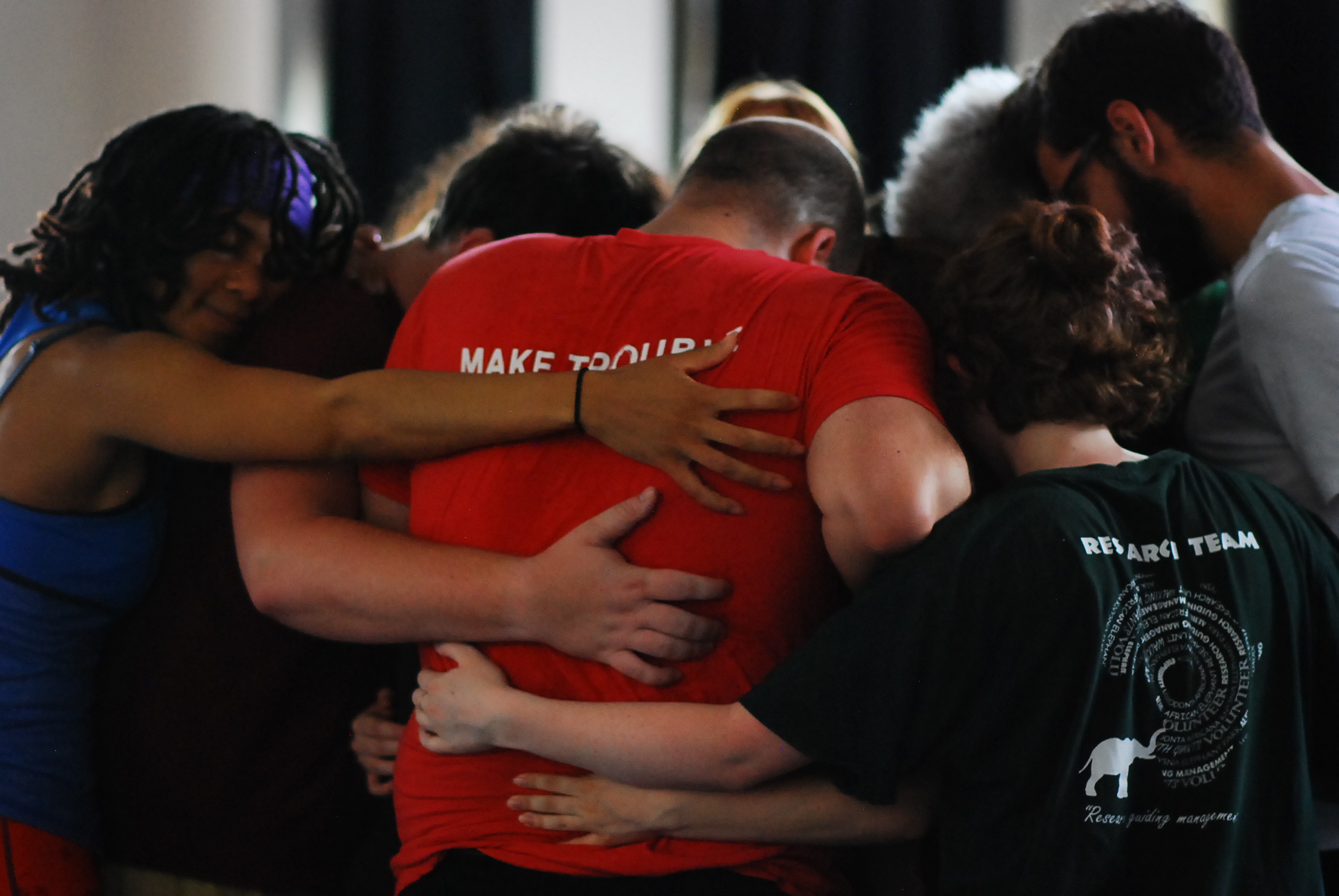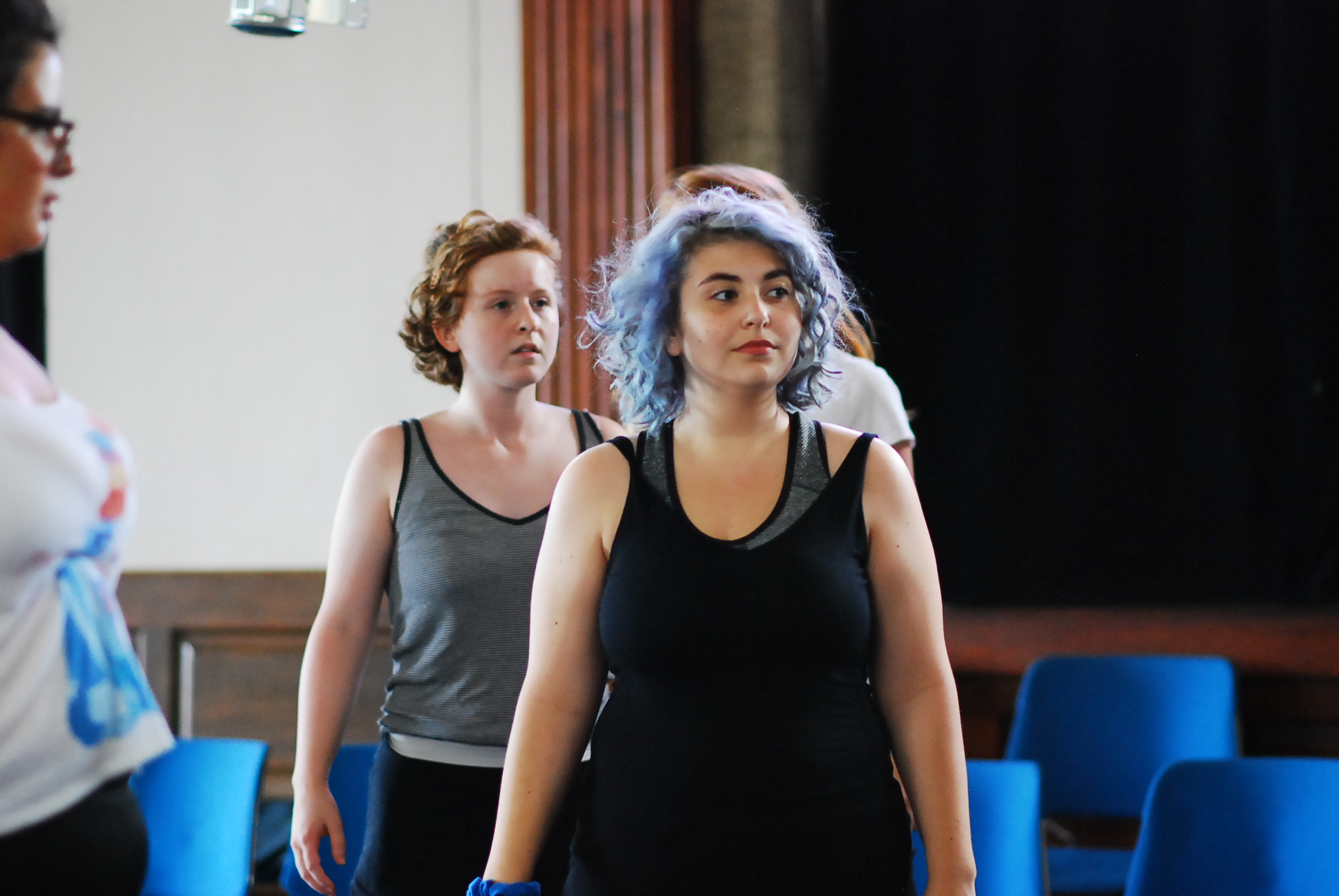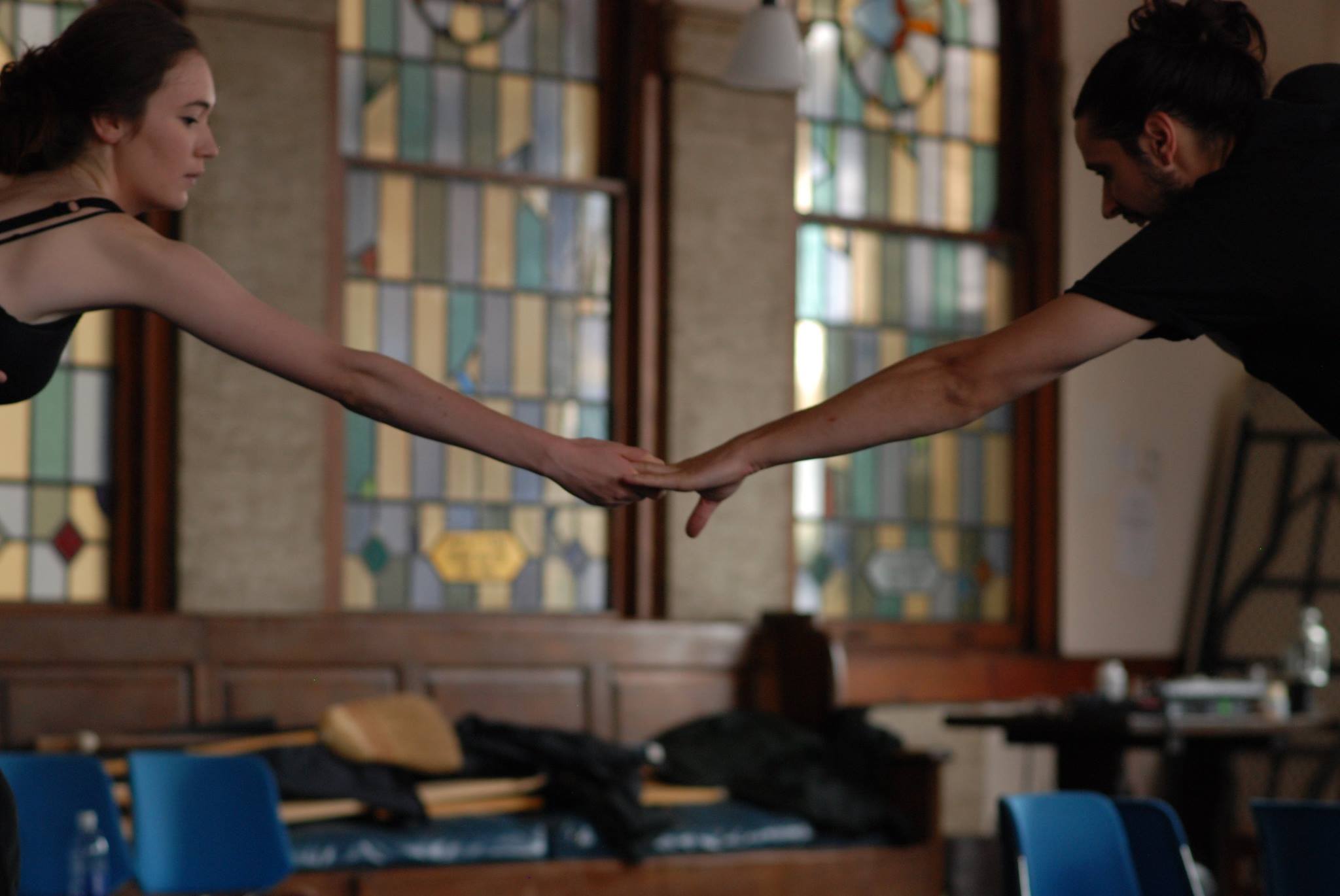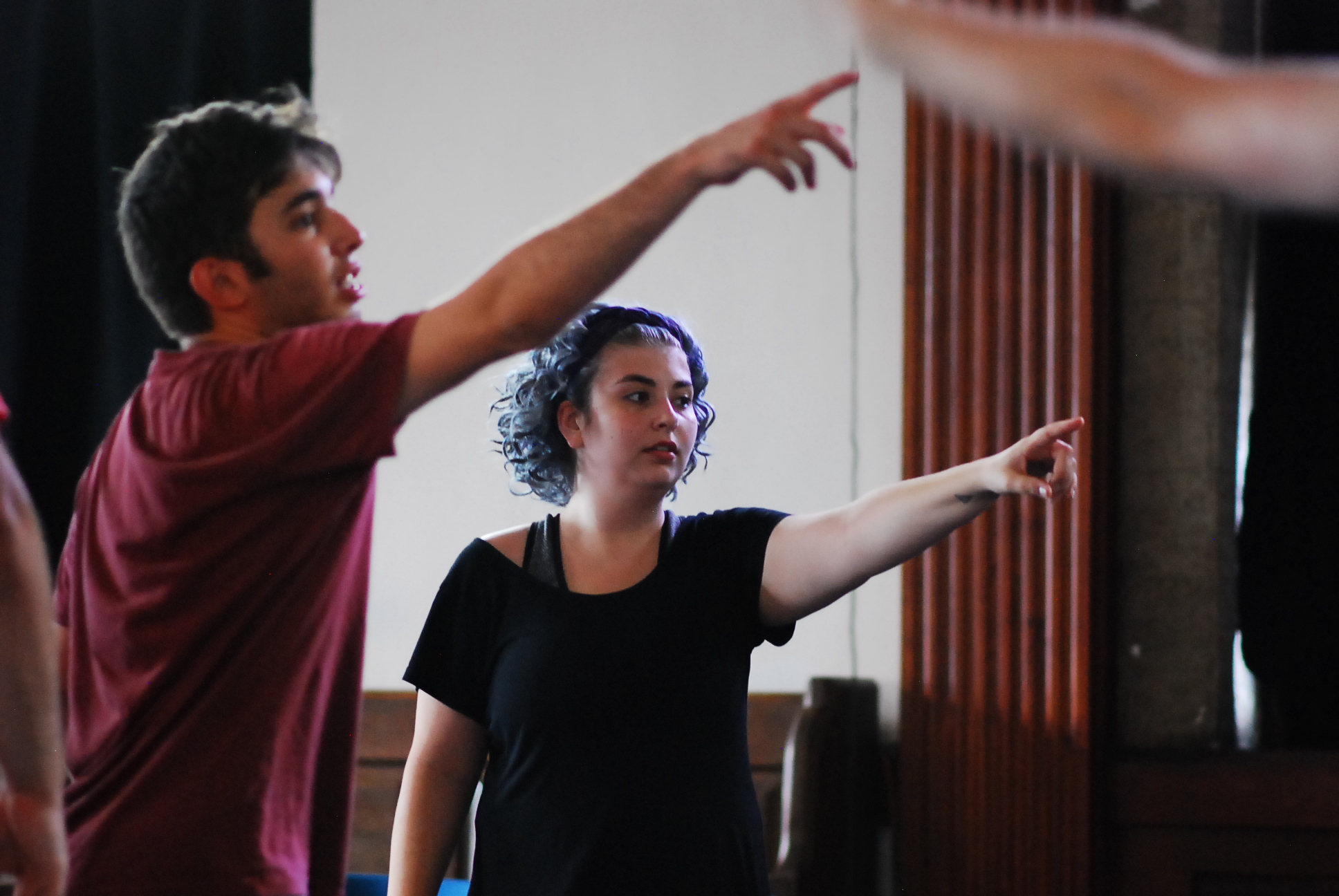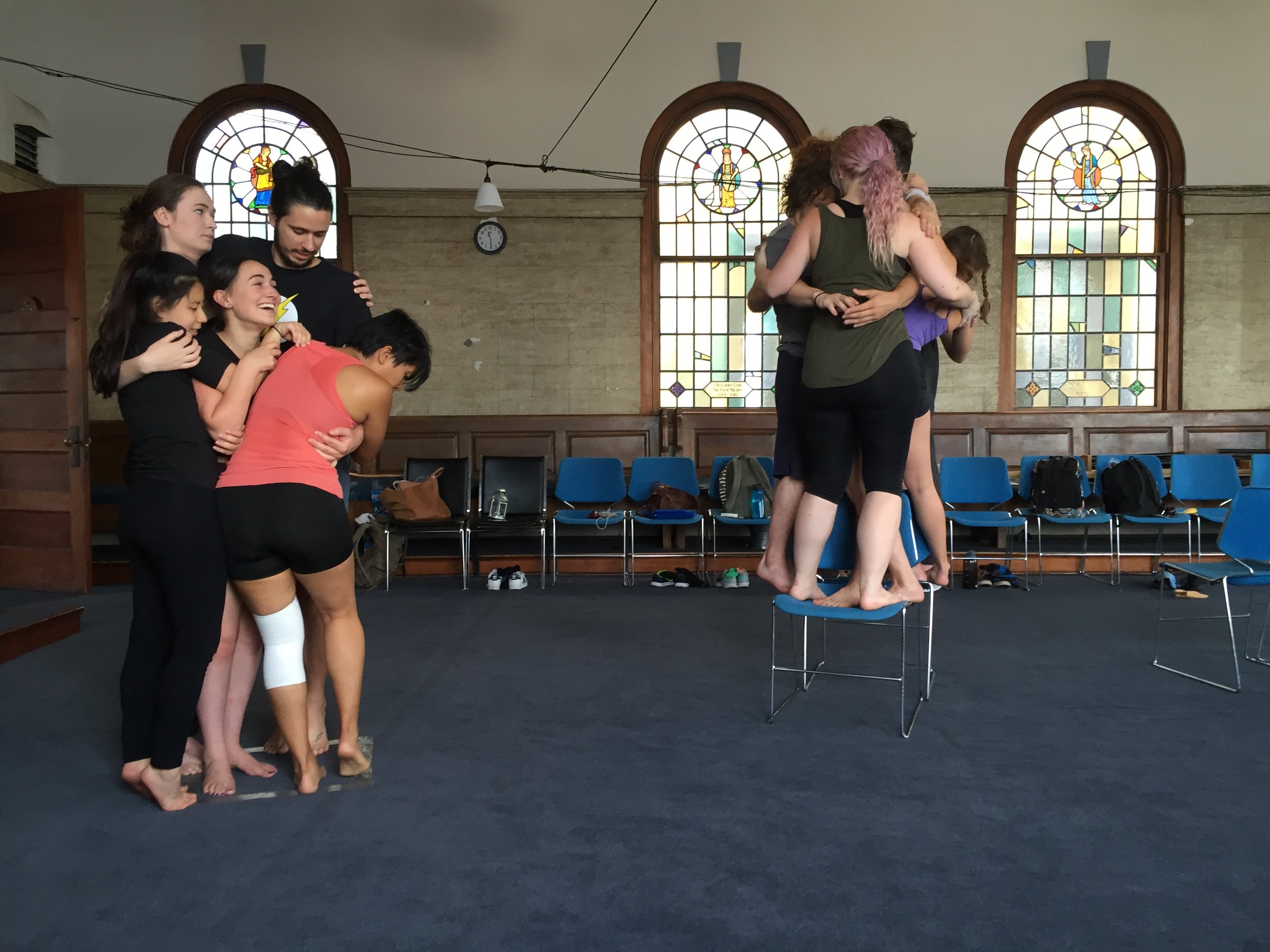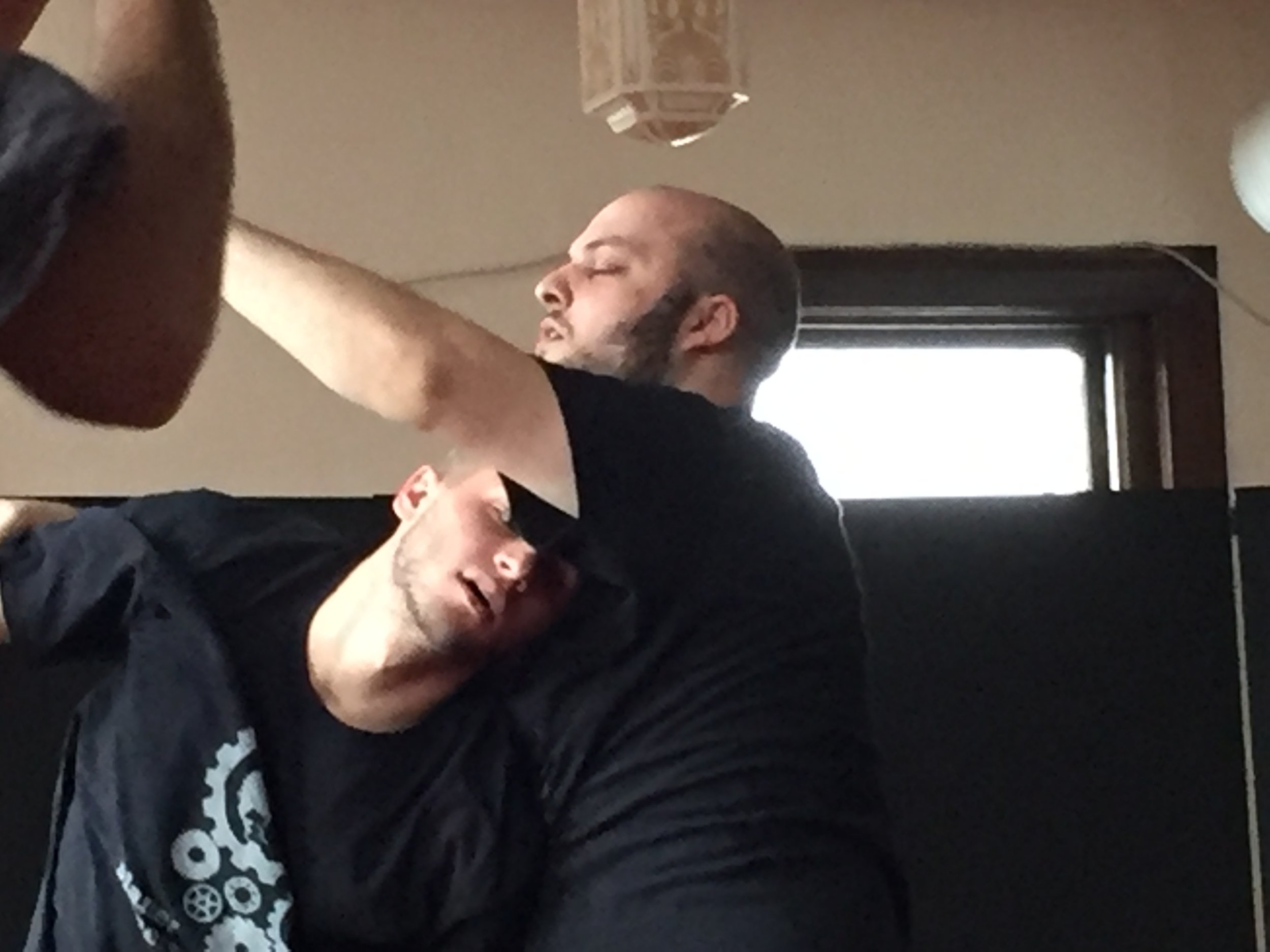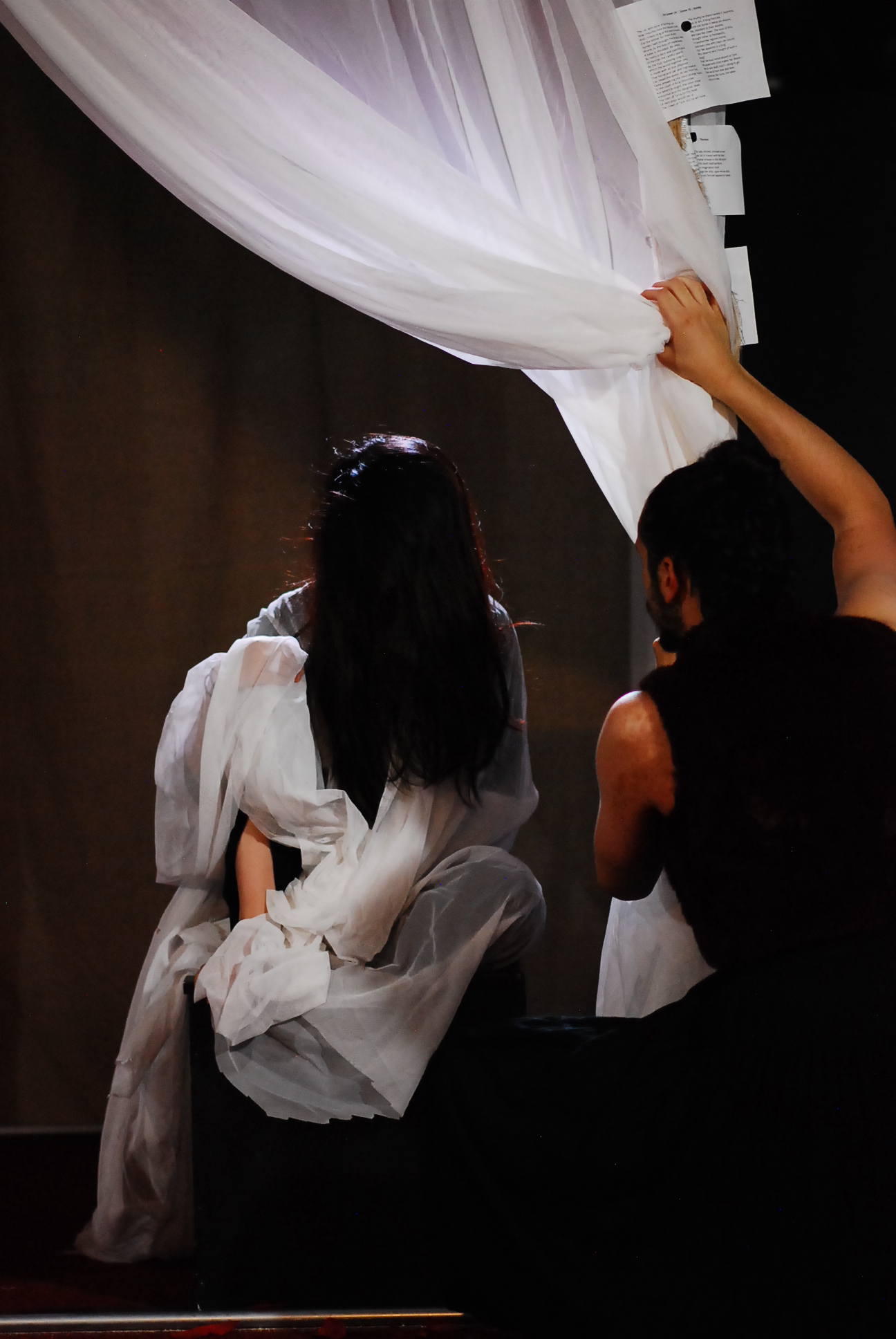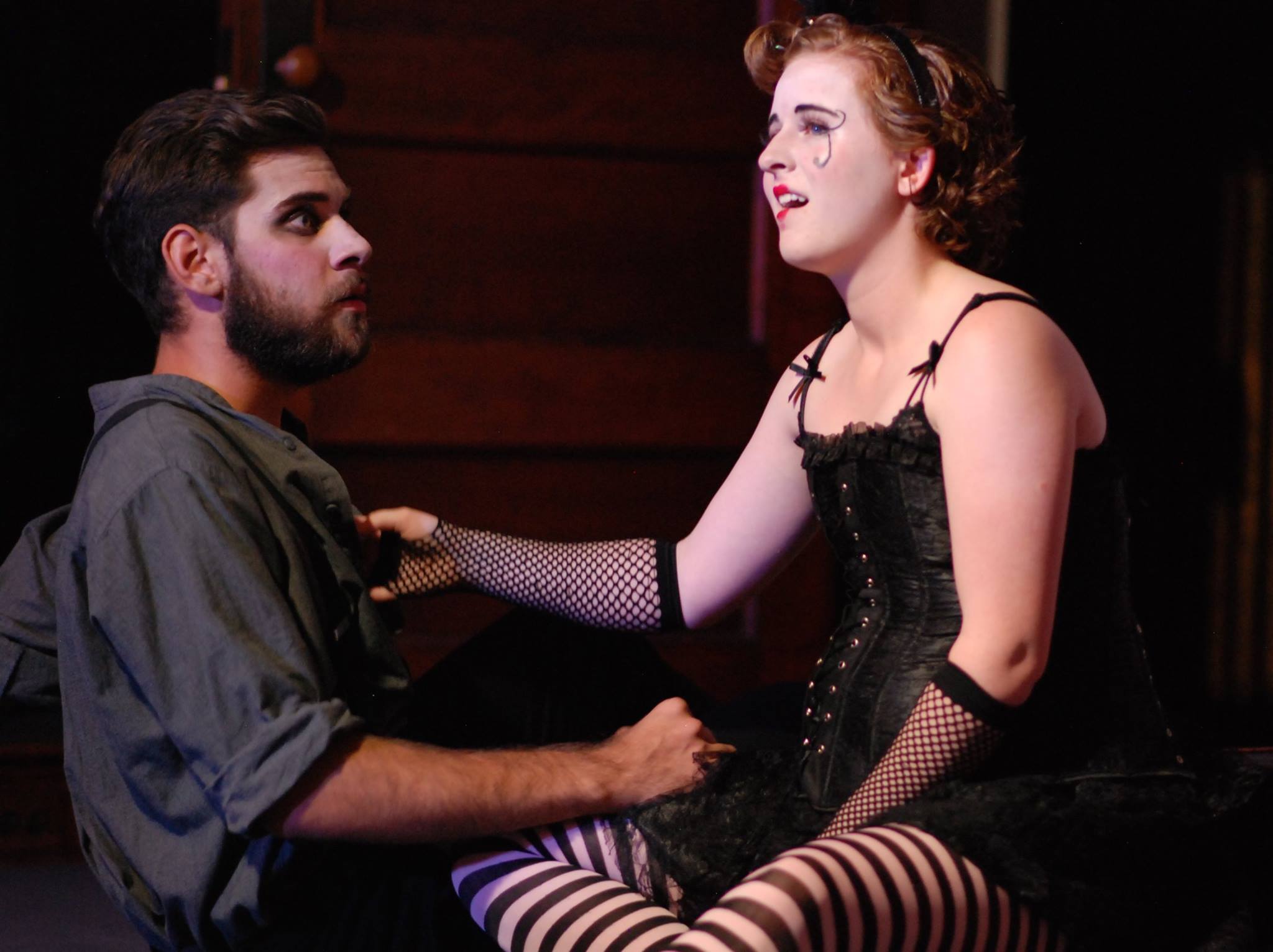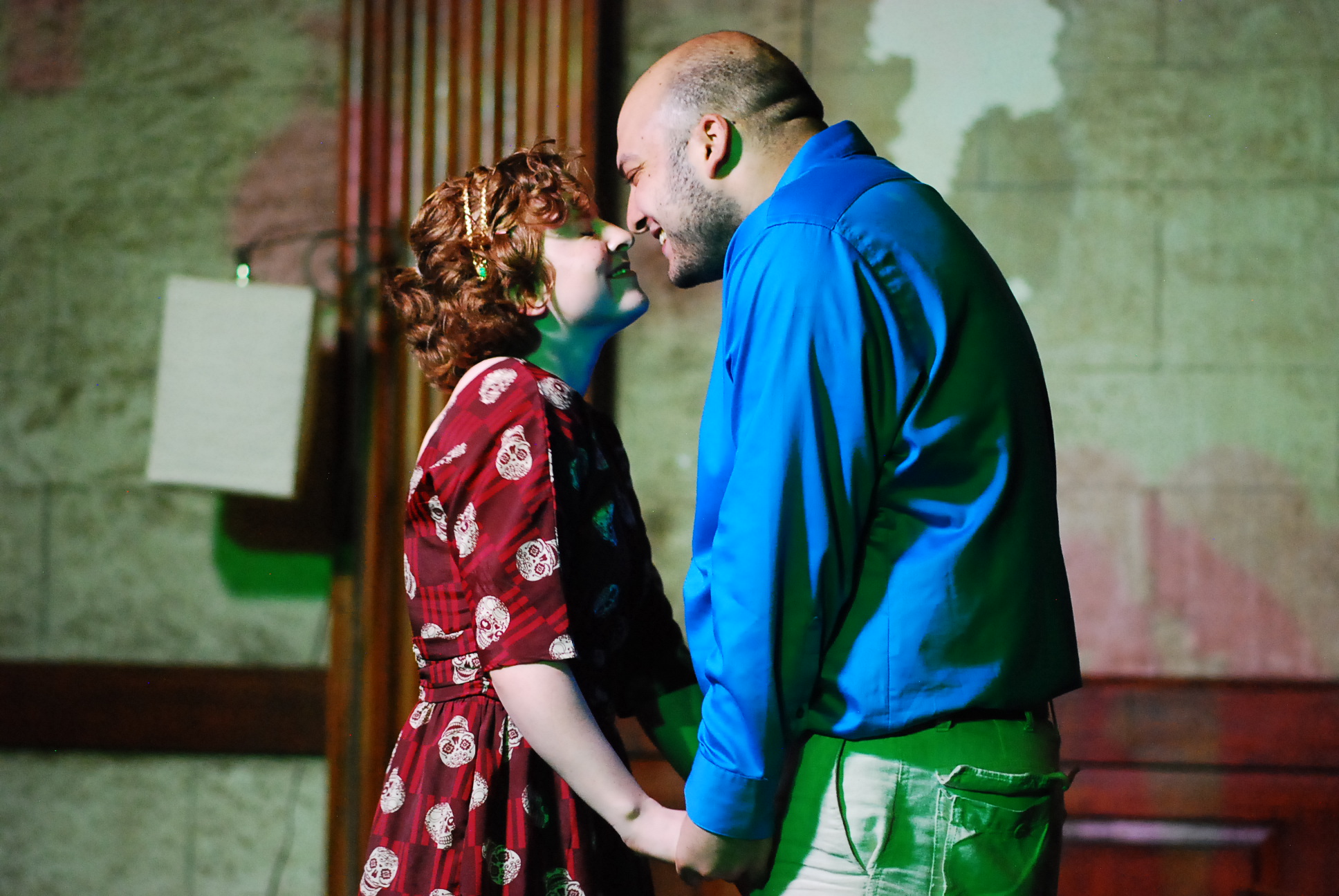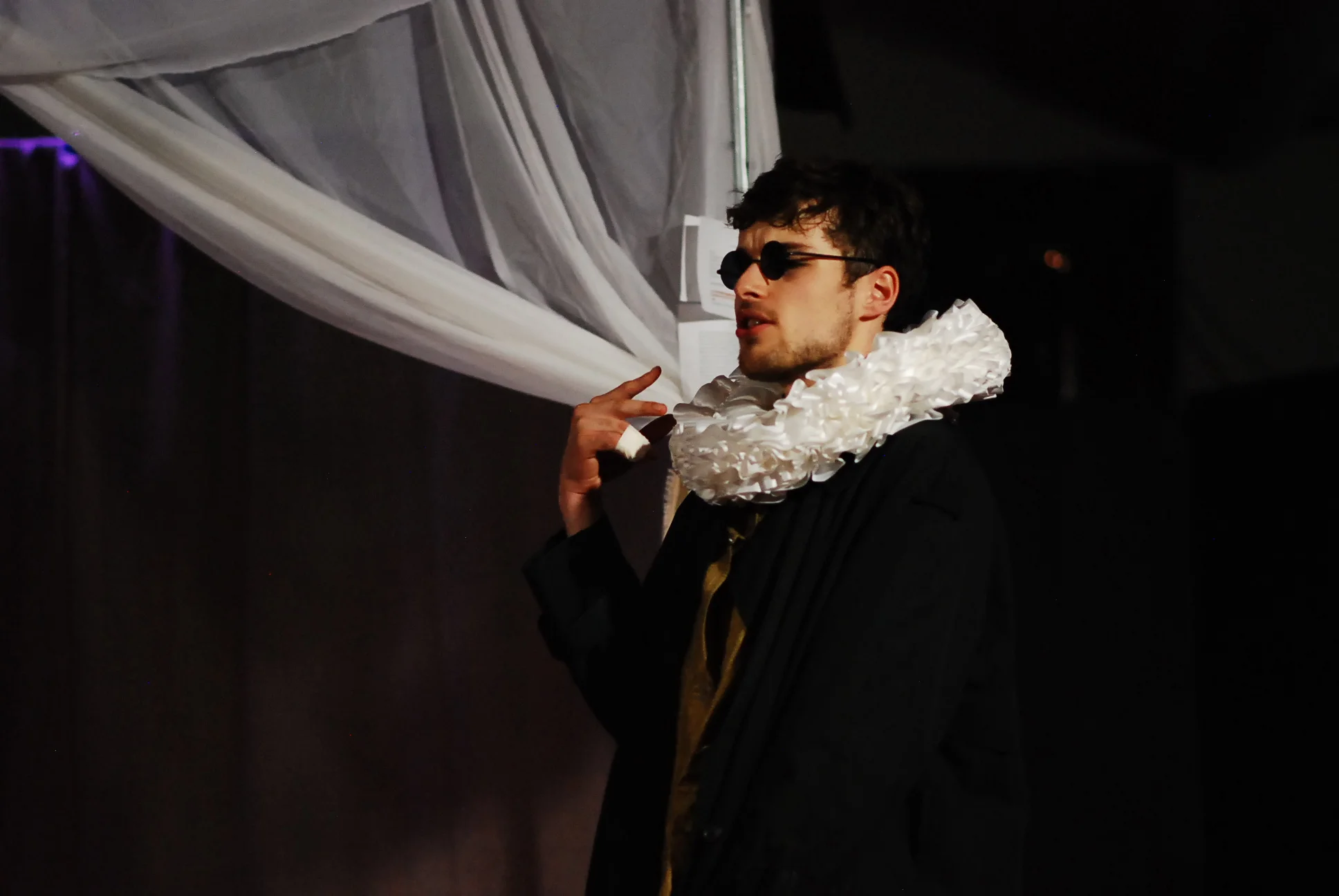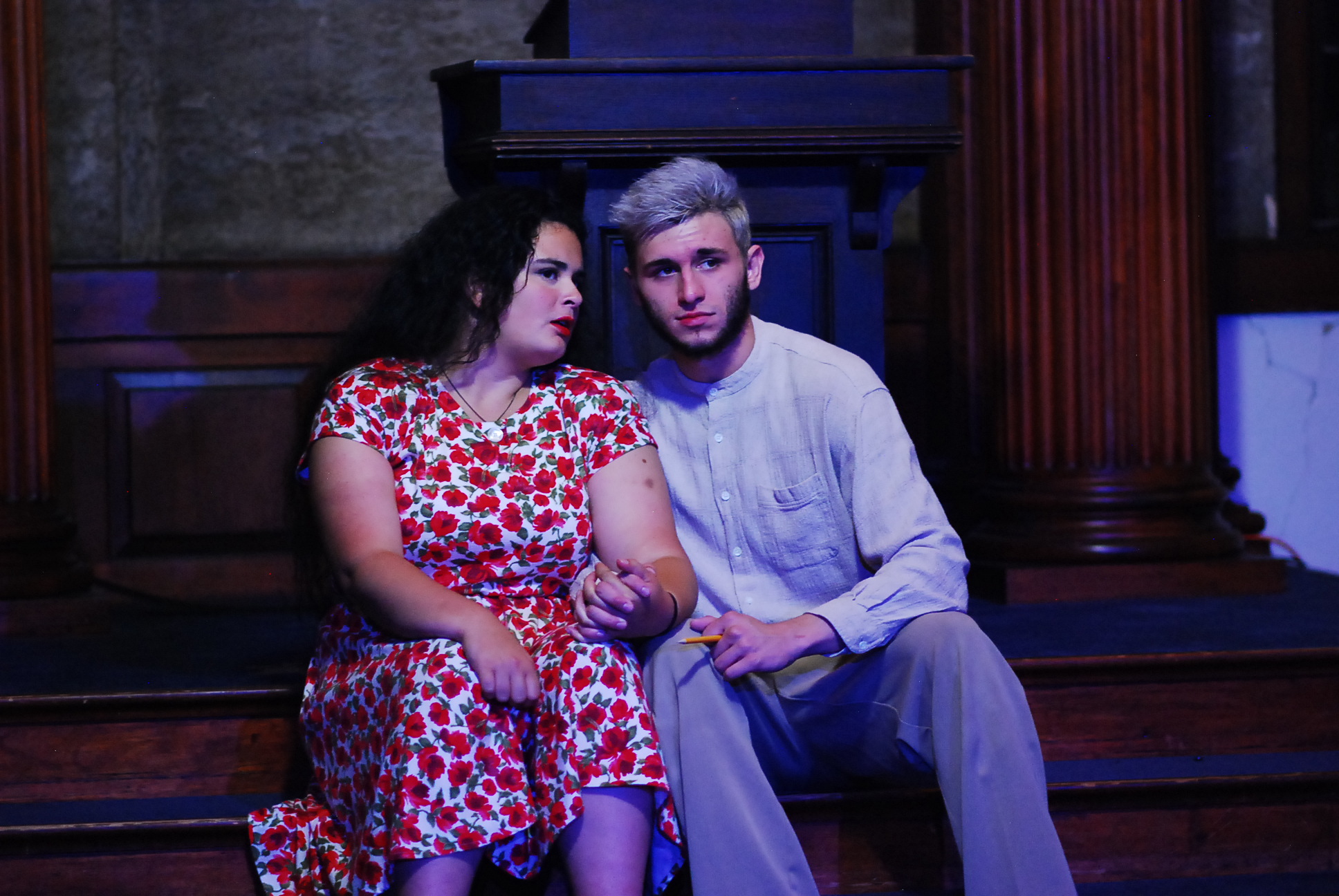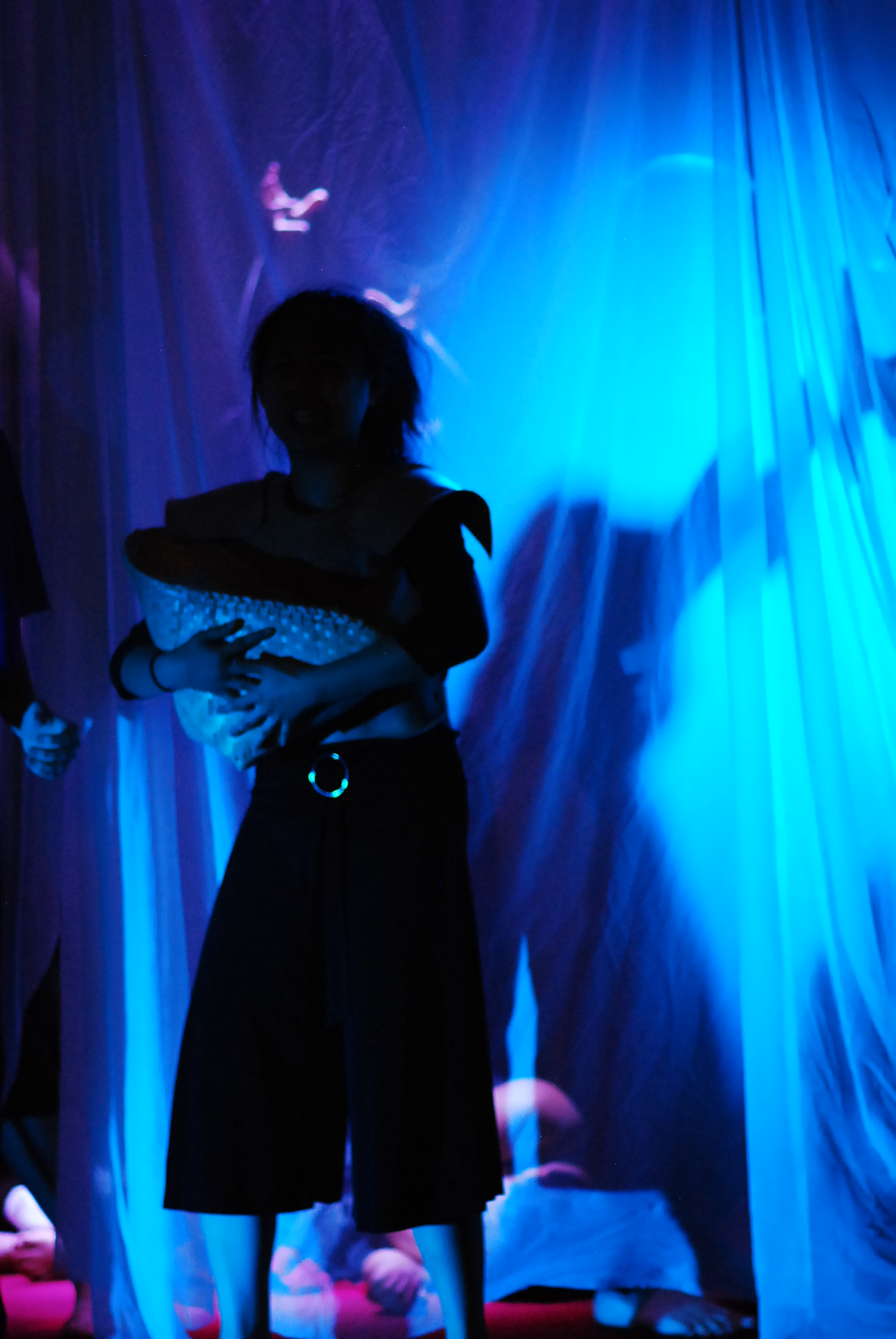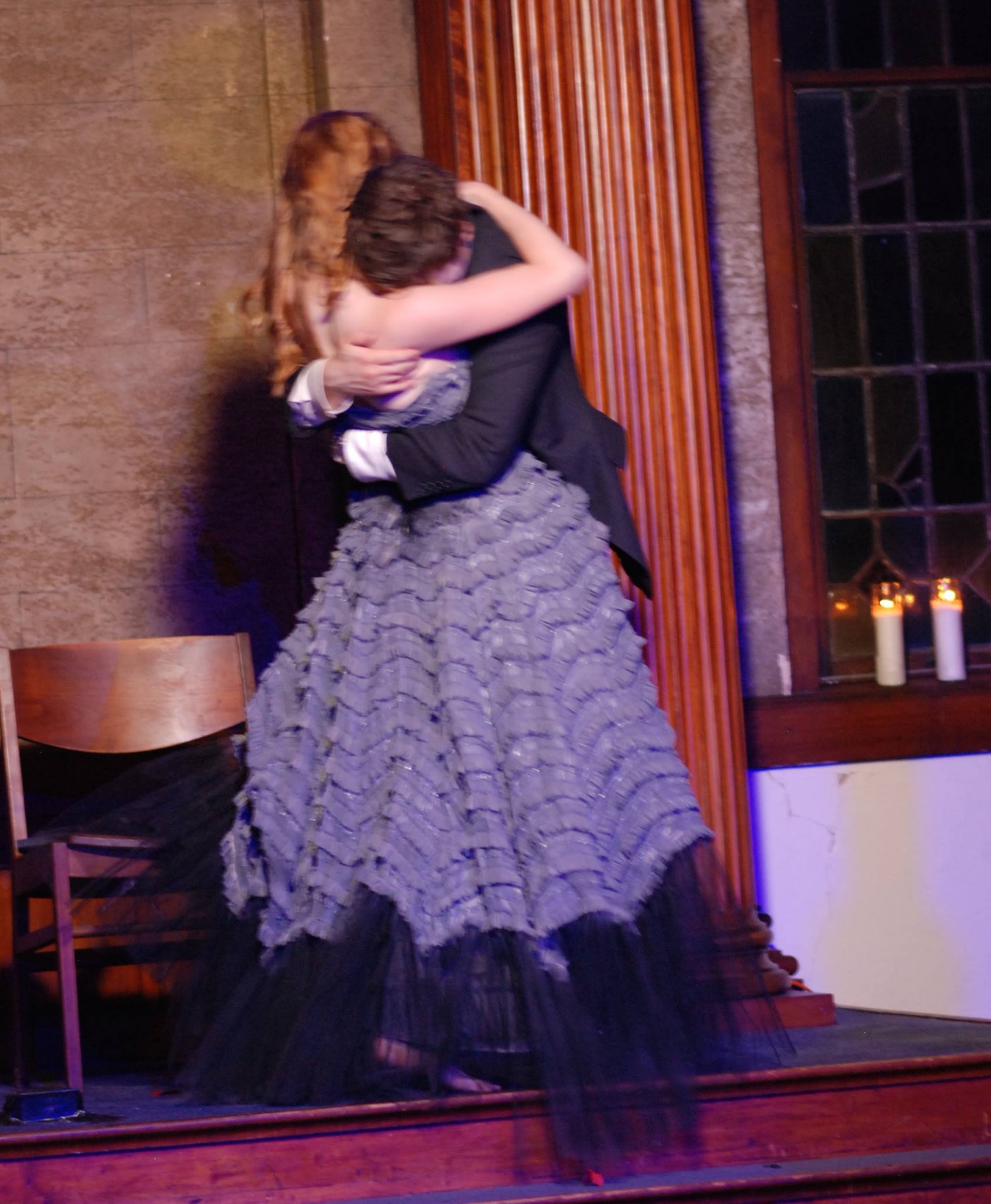Training
Philosophy
More than an actor. The training of Make Trouble draws on our collective experience with a diverse collection of philosophies and approaches. All three directors have studied with Anne Bogart and the SITI Company, and this will be reflected in the work of daily training and rehearsal. The work will often be quite physical.
Ensemble is not a word we use in a general sense. We will train you how to work and create together as an ensemble. We, as actors and directors and scholars, have dedicated our artistic and academic training and teaching in contemporary ensemble theater-making and devising. It is a specific craft; it is rigorous and freeing, quickly you will discover your own strengths and paths towards growth because you have the support of your ensemble mates, because you have the freedom to create.
We will also be drawing on our direct experience with corporeal mime and contemporary clown, as well as the work of several other ensembles, including but not limited to Forced Entertainment, Odin Teatret, and Teatr Gardzienice.
Each of us have been producing our own work for a long time, so participants shouldn't expect an isolated masterclass in any one of these techniques, but they may give an idea of the nature and scope of the daily work.
The curriculum purposefully combines training with performance. Ensemble theater making and devising, in the practical context of Shakespeare performance. They are inextricably linked, each influences the other. Once the shows open we will continue training for several hours a day, as we understand the performance to be not the end, but the jumping off point for further discovery.
Why the combination of Ensemble and Devised Theater with Shakespeare? Because Shakespeare wrote for an ensemble, a team who knew each other, trusted each other, took care of each other and his plays. Because young theater artists are resilient, gutsy, and welcoming to rigor and new performance and theater making practices. Because Shakespeare and young artists are magic together. A breathtaking esprit de corps. Loads of potential for theatrical trouble.
Each year, Make Trouble runs a 5-week summer intensive that combines training with performing, for both college students and recent college graduates. We invite 12-14 students to join us for our summer repertory ensemble.
Expect to work in a rigorous, conservatory style training as an invested, committed ensemble. Living, training, rehearsing and performing two Shakespeare plays together as a generous, open-hearted team. Generosity, kindness, curiosity, an eagerness to create, openness to get into theatrical trouble. These are qualities we are looking for as we build the Trouble Ensemble.
Performing
Ensemble Performance in Repertory. As an ensemble, we will study, research, take apart, grapple with, put back together again, rehearse, create, and perform Shakespeare's plays in rotating repertory. Students will be cast in two shows and have rehearsals each day for both plays.
After our ensemble is formed, students will receive their scripts and casting for both plays will take place in May through online casting meetings. Here's the most important part: actors will arrive fully-memorized for both plays when they arrive on to Make Trouble and run both plays off-book, on-their-feet on the first day of rehearsal.
At the American Shakespeare Center where we first experienced this — Amanda and Thadd as actors in the company — they call it a Ren Run. We were long ago inspired by the breathlessness and rigor of running the play off-book together after having just met. It's been part of our directing and training process for years. It works, and is a beautiful way to build an ensemble from day one. We believe in this sense of productive crisis. You’ll begin your training this summer with what we are calling a "Trouble Run”
“Being able to work with artists such as Colleen, Amanda and Thadd was such a privilege. They gave us professional training and an opportunity to create shows that tested all of our abilities as growing artists. What resulted were not just unique shows to be proud of but the creation of a tight ensemble and the realization that we could create more in the future.”


